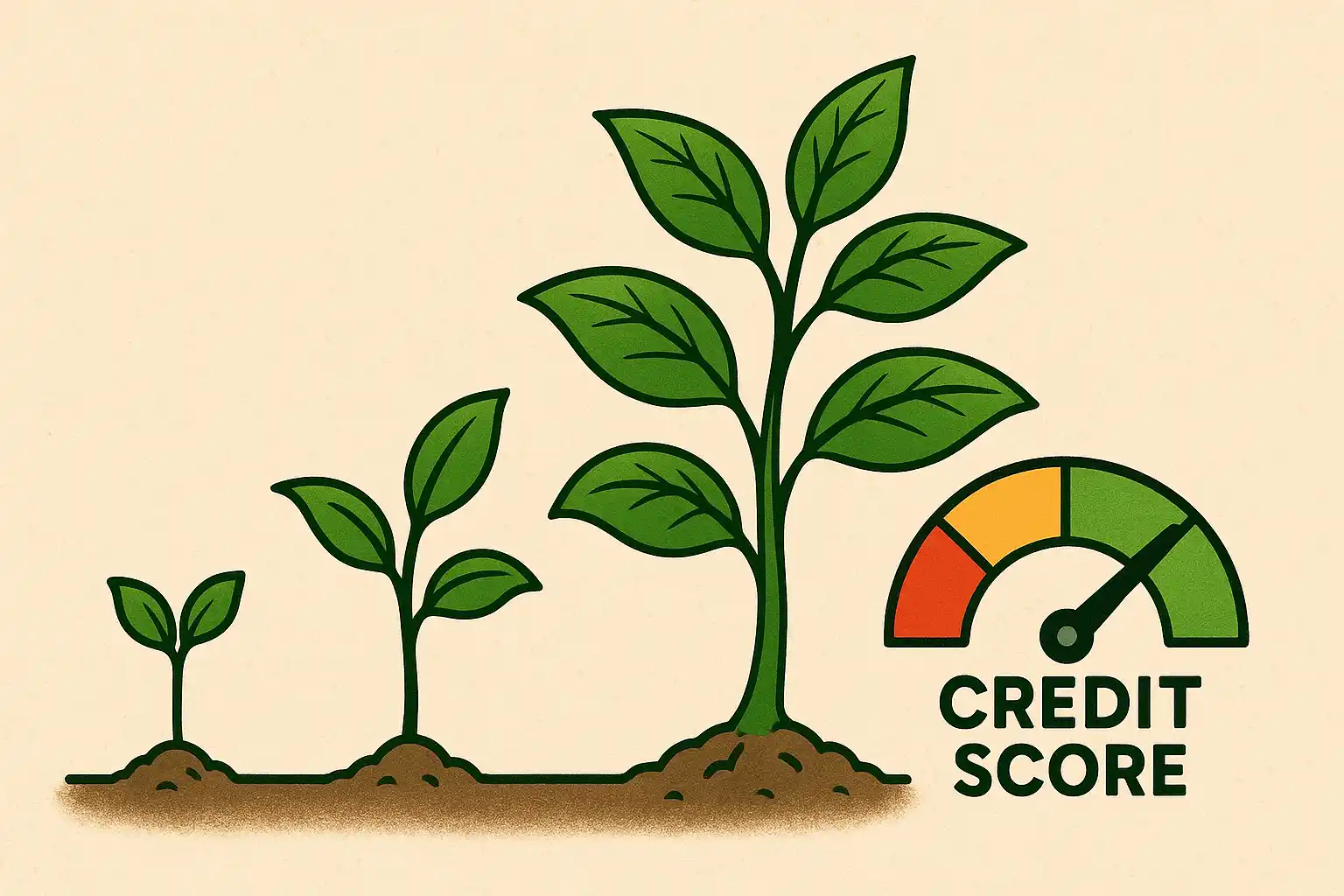Let’s start with definitions: A debit card is a payment card that deducts money directly from your checking or savings account when you make a purchase. Think of it as electronic cash. A credit card, conversely, allows you to borrow money from the card issuer (like a bank) up to a set limit to pay for purchases. You then repay the borrowed amount at a later date, typically monthly. While reaching for your debit card might feel like the ‘safer’ or more responsible choice to avoid debt, are you potentially missing out on significant advantages? Understanding the key benefits of a credit card over a debit card – when used wisely – is crucial for navigating today’s financial world effectively. This guide explores those powerful advantages for 2025, including building your financial future, securing your transactions, earning rewards, and more, while also acknowledging the necessary responsibilities.
Disclaimer: While the fundamental differences between credit and debit cards are broadly similar worldwide, specific regulations, particularly concerning consumer protection laws (like fraud liability limits mentioned below), and credit reporting systems primarily reflect the U.S. context. Please check the specific terms, conditions, and laws applicable in your country.
Table of Contents
Why Consider a Credit Card? Beyond Just Spending Power
Many people view credit cards primarily as a way to spend money they don’t have, often associating them with debt and high interest. While those risks are real and require discipline (more on that later!), credit cards offer several distinct advantages over debit cards that can significantly benefit your financial life when managed responsibly.

1. Building Your Credit History: The Foundation for Your Financial Future
- How It Works: This is arguably the most compelling long-term benefit of a credit card over a debit card. When you open and use a credit card, the issuer reports your payment behavior (whether you pay on time) and how much of your available credit you use (your credit utilization ratio) to the major credit bureaus (in the U.S., these are Experian, Equifax, and TransUnion). Consistent, positive reporting demonstrates your ability to manage borrowed funds responsibly.
- The Power of Good Credit: This reported activity builds your credit history, which forms the basis of your credit score (like FICO® Scores or VantageScores®). A good credit score is essential for accessing favorable terms on major financial products. It can mean qualifying for lower interest rates on mortgages, auto loans, and personal loans, potentially saving you thousands or even tens of thousands of dollars over time. Good credit can also make it easier to rent an apartment, get utilities connected without large deposits, and sometimes even influence insurance premiums or job prospects. Learn more about establishing good financial habits in our Beginner’s Guide to Personal Finance.
- Debit Cards Don’t Build Credit: Using your debit card simply moves your own money. Since no borrowing or repayment is involved, this activity isn’t typically reported to credit bureaus and therefore does nothing to establish or improve your credit score.
- Responsibility is Paramount: Remember, this benefit only applies if you use the credit card responsibly. Making late payments, carrying high balances, or exceeding your credit limit will damage your credit score significantly.
2. Superior Fraud Protection: Shielding Your Own Money
- Credit Card Protections (U.S. Law Example – FCBA): Federal law provides robust protection for credit card users against unauthorized charges. In the U.S., the Fair Credit Billing Act (FCBA) limits your liability for fraudulent charges to a maximum of $50. Furthermore, if only your credit card number is stolen (not the physical card), your liability is $0. Critically, when you report unauthorized credit card charges, the issuer typically removes those charges from your bill while they investigate. This means the fraudulent activity doesn’t directly impact the cash in your bank account while the issue is resolved.
- Debit Card Protections (U.S. Law Example – EFTA): Protections for debit cards, governed by the Electronic Fund Transfer Act (EFTA) in the U.S., are also in place but can be less advantageous, particularly regarding the timing and amount of liability:
- Timeliness Matters: Your maximum liability is $50 only if you report the loss or theft of your card within two business days of learning about it.
- Increased Liability: If you report after two business days but within 60 days of your statement being sent, your liability can increase to $500.
- Unlimited Liability Risk: If you fail to report unauthorized charges within 60 days of your statement date, you could potentially be liable for all the funds stolen from your account, including linked overdraft protection.
- Direct Fund Access: The most significant difference: When debit card fraud occurs, the money is immediately withdrawn from your linked bank account. Getting those funds returned often requires waiting for the bank to complete its investigation, which can take days or even weeks, potentially leaving you short on cash for essential bills.
- Zero Liability Policies: It’s true that major card networks like Visa and Mastercard offer $0 liability policies for unauthorized transactions on both credit and debit cards bearing their logos. These network policies often provide excellent protection in practice. However, the underlying legal protections (FCBA vs. EFTA) offer a stronger safety net for credit cards concerning your immediate cash flow and maximum potential liability, especially if reporting is delayed.
- The Bottom Line: Using a credit card creates a firewall between a thief and your actual bank funds, offering greater peace of mind, especially for online purchases or when traveling.
- The Consumer Financial Protection Bureau (CFPB) offers detailed guides on consumer rights regarding credit and debit card fraud: Learn more at consumerfinance.gov.
3. Earning Rewards & Perks: Getting Value Back on Spending
- Rewarding Your Spending: Unlike most debit cards, many credit cards offer rewards programs that give you something back for your everyday purchases. Common types include:
- Cash Back: Earn a percentage (typically 1% to 5% or even more in rotating categories) of your spending back as cash or a statement credit.
- Travel Points/Miles: Earn points or miles redeemable for flights, hotel stays, car rentals, or other travel expenses, often with bonus points for travel-related purchases.
- General Rewards Points: Earn points usable for a wider variety of redemptions like merchandise, gift cards, travel, or cash back through the card issuer’s portal.
- Lucrative Welcome Bonuses:Many rewards cards attract new users with valuable sign-up bonuses after meeting an initial spending requirement (e.g., earn 50,000 points worth $500+).
- Valuable Perks: Beyond basic rewards, credit cards often bundle extra benefits (benefits vary significantly by card), such as:
- Travel insurance (trip delay/cancellation, lost luggage)
- Rental car collision damage waiver (usually secondary)
- Purchase protection (against damage/theft)
- Extended warranties on purchases
- Cell phone protection (if the bill is paid with the card)
- Airport lounge access (premium cards)
- No foreign transaction fees (travel cards)
- Debit Card Comparison: These types of rewards and perks are rarely offered with standard debit cards.
- Responsible Rewards Strategy: Choose a card whose rewards align with your spending habits. Don’t spend extra just to earn rewards, as interest costs will quickly negate their value if you carry a balance.

4. Purchase Power & Flexibility: The Grace Period Advantage
- The Float Explained: When you use a credit card, the money isn’t immediately deducted from your account. The purchase appears on your statement, and you have a period after your statement cycle closes but before your payment due date to pay the bill. This time frame is known as the grace period, typically lasting at least 21 days.
- Interest-Free Borrowing (Under Conditions): Here’s the key: If you pay your entire statement balance in full by the due date, you generally will not be charged any interest on the purchases made during that billing cycle. This essentially allows you to borrow money interest-free for several weeks.
- Practical Benefits: This “float” can be helpful for managing cash flow, allowing you to make purchases now and pay for them when your paycheck arrives without incurring interest. It can also make handling large, unexpected expenses easier than immediately draining your bank account, provided you can pay the balance off by the due date.
- Debit Card Comparison: Debit cards offer no grace period; funds leave your account almost immediately.
- Critical Warning: The grace period usually does not apply if you carry a balance from one month to the next. In that case, interest typically starts accruing on new purchases immediately, in addition to the interest on your existing balance. Paying in full is essential to benefit from the grace period.
5. Easier Dispute Resolution & Chargebacks
- Problem with a Purchase? If you buy something with a credit card and the item is defective, damaged upon arrival, or the service wasn’t provided as promised, disputing the charge is often easier than with a debit card.
- The Chargeback Power: You can initiate a chargeback request with your credit card issuer. They will investigate the dispute with the merchant. During this investigation, the charge is typically removed from your account temporarily. This puts pressure on the merchant to resolve the issue or provide proof the charge was valid.
- Debit Card Difficulty: Disputing a debit card transaction often means the money is already gone from your account. Getting a refund relies more heavily on the merchant’s willingness to cooperate and the bank’s investigation under EFTA guidelines. You lack the immediate leverage of withholding payment that a chargeback provides.
The Balancing Act: Understanding Credit Card Risks & Responsibilities
Highlighting the benefits of a credit card over a debit card is only half the story. Credit cards are powerful tools, but they demand respect and responsibility. Misuse can lead to significant financial hardship. Be acutely aware of the risks:
- High Interest Rates (APR): This is the biggest danger. If you don’t pay your balance in full each month, the interest charges on credit cards are typically very high (average APRs often exceed 20%). This makes carrying debt incredibly expensive and can quickly trap you in a cycle that’s hard to escape.
- Accumulating Debt: The ease of swiping can lead to spending more than you can afford to repay, leading to mounting debt. It’s crucial to track your spending and stick to a budget. Need budgeting help? See How to Make a Budget Guide or explore Zero-Based Budgeting. If debt is already an issue, check out How to Get Out of Credit Card Debt.
- Fees: Be aware of potential fees: annual fees, late payment fees (which can be hefty and trigger penalty APRs), over-limit fees, balance transfer fees, cash advance fees (which usually come with high APRs starting immediately). Read your cardholder agreement!
- Damage to Credit Score: Late payments, high credit utilization (using a large percentage of your available credit limit), and applying for too many cards in a short period can severely damage your credit score, negating the credit-building benefit.
- Temptation to Overspend: Credit limits aren’t free money. It requires discipline to treat a credit card like you would cash or a debit card, only spending what you know you can repay. Building financial willpower is key, explore Develop Financial Discipline.
The Golden Rule: To truly leverage the benefits, commit to paying your statement balance in full and on time, every single month.
When Does a Debit Card Still Make Sense?
Despite credit card advantages, debit cards remain useful:
- Strict Budget Control: If you find it difficult to control spending or have past issues with credit card debt, using a debit card forces you to spend only what you have.
- Avoiding Interest: Eliminates the risk of accruing high-interest debt.
- ATM Cash Withdrawals: The primary way to get cash from your checking account without fees (use your bank’s ATMs). Using a credit card for cash advances is usually very expensive.
- Simplicity: For those who prefer the straightforward nature of spending their own money directly.
Making the Choice: Which Card is Right for You?
The best approach often involves understanding when to use each card:
- Consider Primarily Using Credit Cards (Responsibly) If:
- Building or improving credit is a priority.
- You value strong fraud protection and dispute resolution.
- You consistently pay your bills in full each month to avoid interest.
- You can benefit from rewards/perks without overspending.
- You need the flexibility of the grace period for cash flow management.
- Consider Primarily Using Debit Cards If:
- You need help sticking to a strict budget and avoiding debt.
- You have a history of credit card misuse.
- You want the absolute simplest way to pay without borrowing.
- Your main need is ATM access.
Many financially savvy individuals use credit cards for the majority of their purchases to earn rewards and gain protection, treating it like a debit card by paying the balance in full every month. They use debit cards mainly for ATM withdrawals.
Setting clear financial priorities helps make these decisions. Learn more about Setting Financial Goals.
Conclusion: Leveraging the Benefits, Avoiding the Pitfalls
The benefits of a credit card over a debit card are undeniable: they are powerful tools for building credit history, offer superior fraud protection under U.S. law, provide valuable rewards and perks, offer payment flexibility through grace periods, and simplify dispute resolution. However, these advantages are intrinsically linked to responsible use. The high interest rates and potential for debt accumulation mean that credit cards must be managed with discipline, ideally by paying the statement balance in full every single month.
By understanding both the significant benefits and the potential risks, you can make informed decisions about which card to use for different situations, ultimately using these financial tools to enhance, rather than hinder, your financial well-being in 2025 and beyond.
Frequently Asked Questions (FAQ)
Is it safer to use a credit card or debit card online?
Generally, using a credit card is considered safer for online purchases. Due to stronger legal protections (like the $50 liability limit under the US FCBA) and the fact that fraud doesn’t directly drain your bank account during a dispute, credit cards offer a better safety net against online fraud compared to debit cards.
Does using a debit card hurt my credit score?
No, using a debit card typically does not hurt your credit score. However, it also does not help build your credit score, as debit card activity isn’t usually reported to credit bureaus because you’re spending your own money, not borrowed funds.
Are credit card rewards really worth it?
They can be, if you pay your balance in full every month to avoid interest charges, which would quickly cancel out the reward value. Choose cards with rewards that align with your spending (cash back, travel points) and be aware of any annual fees, ensuring the rewards earned outweigh the fee. Welcome bonuses can offer significant initial value.
What happens if I only make the minimum payment on my credit card?
Only paying the minimum is very costly. You’ll be charged high interest on the remaining balance, and it can take many years (sometimes decades) to pay off the debt, costing you far more than the original purchase price. It can also keep your credit utilization high, potentially hurting your credit score. Always aim to pay the full statement balance.
Which card should I use for everyday purchases?
If you are financially disciplined and can pay your balance in full each month, using a credit card for everyday purchases is often advantageous due to rewards, fraud protection, and credit building benefits. If you struggle with overspending or managing debt, using a debit card might be a safer choice to ensure you only spend money you have.



